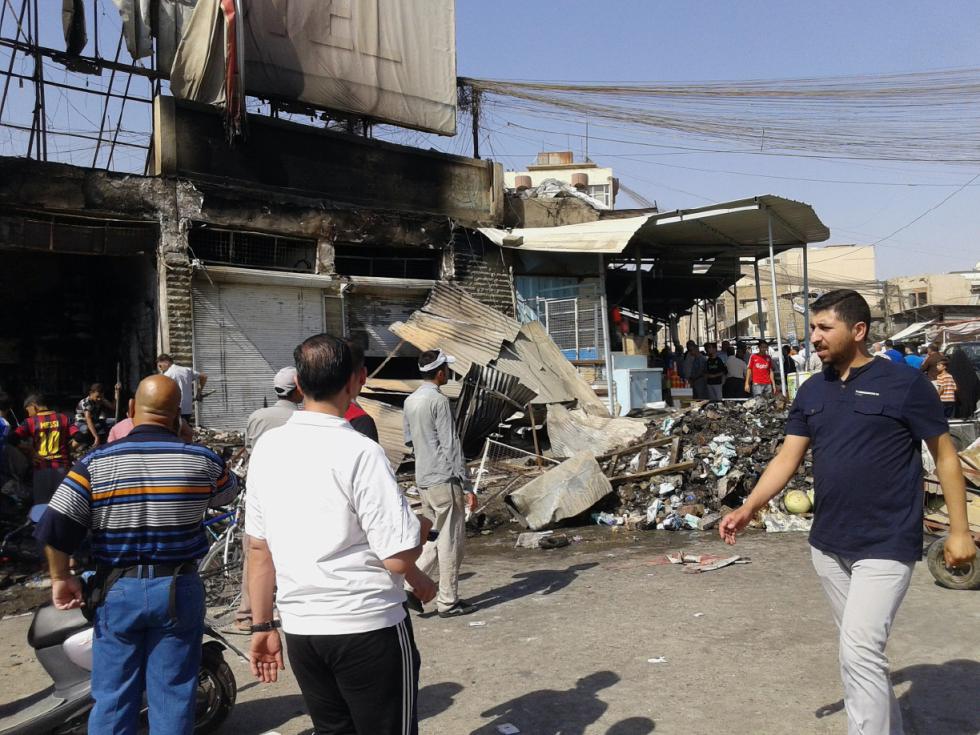An air strike in the northern Iraqi city of Mosul has killed at least 30 people, reports say.
Some of those killed were being held by the Islamic State (IS) militants.
Iraqi state TV reported that at least 60 militants were killed and about 300 detainees were able to escape.
Kurdish Peshmerga forces were also reportedly shelling eastern districts of Mosul and an area to the north-east on Wednesday.
Earlier, a senior Kurdish official warned that 50,000 members of the Yazidi religious minority trapped in mountains to the west faced death if they were not rescued soon.

The Yazidis fled to the mountains with little food or water after fighters from IS – previously known as the Islamic State in Iraq and the Levant (ISIS) – overran the town of Sinjar at the weekend.
“Urgent international action is needed to save them. Many of them – mainly the elderly, children and pregnant women – have died,” Jabbar Yawar, secretary-general of the Kurdistan Regional Government (KRG) ministry in charge of the Peshmerga, told the Reuters news agency.
On Tuesday, the UN said it had received credible reports that 40 Yazidi children had died “as a direct consequence of violence, displacement and dehydration” since Sunday.
Iraqi army helicopters were reportedly delivering food and water to the area on Wednesday.
Sinjar fell during an offensive that saw the IS and its allies seize several other towns in the north-west, an oil field and Iraq’s biggest dam, inflicting a humiliating defeat on the Peshmerga.
A senior official in Iraqi President Jalal Talabani’s Patriotic Union of Kurdistan (PUK) said fighters from the Syria-based Kurdish Democratic Union Party (PYD) and the Turkish Kurdistan Workers’ Party (PKK) had launched a counter-offensive.
“The fighters of [the PYD] and the PKK are responsible for confronting [the Islamic State] in Rabia and the Sinjar area,” Hallo Penjweny told the AFP news agency.
“On our side, we are taking care of Zumar and the rest of the area north and east of Mosul.”
Ties were strained by the KRG’s decision to send Peshmerga forces into disputed areas of northern Iraq in June after soldiers abandoned their posts in the face of the IS advance; a push by Kurdish leaders for an independence referendum; and PM Nouri Maliki’s claim in July that they were giving sanctuary to extremists.
